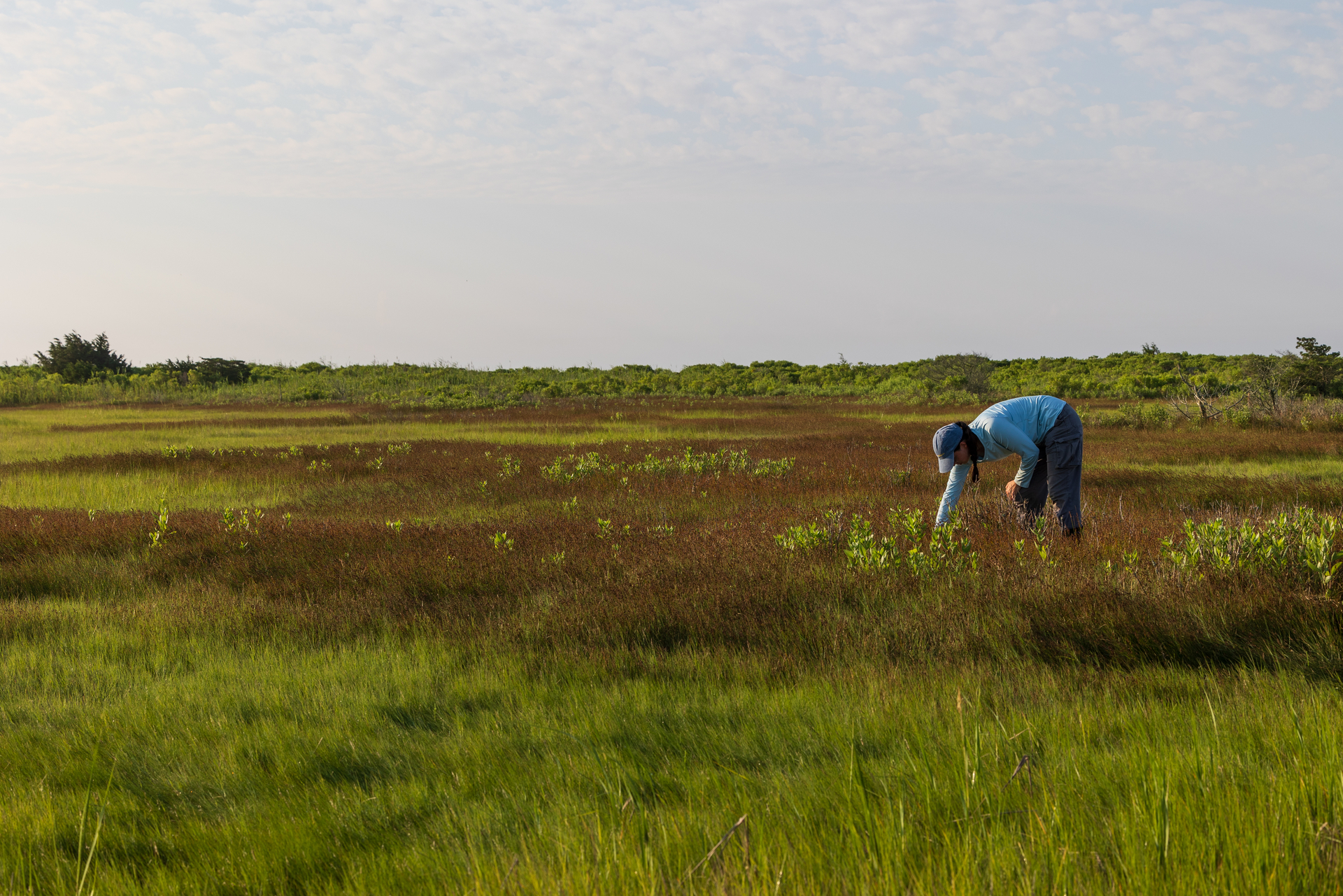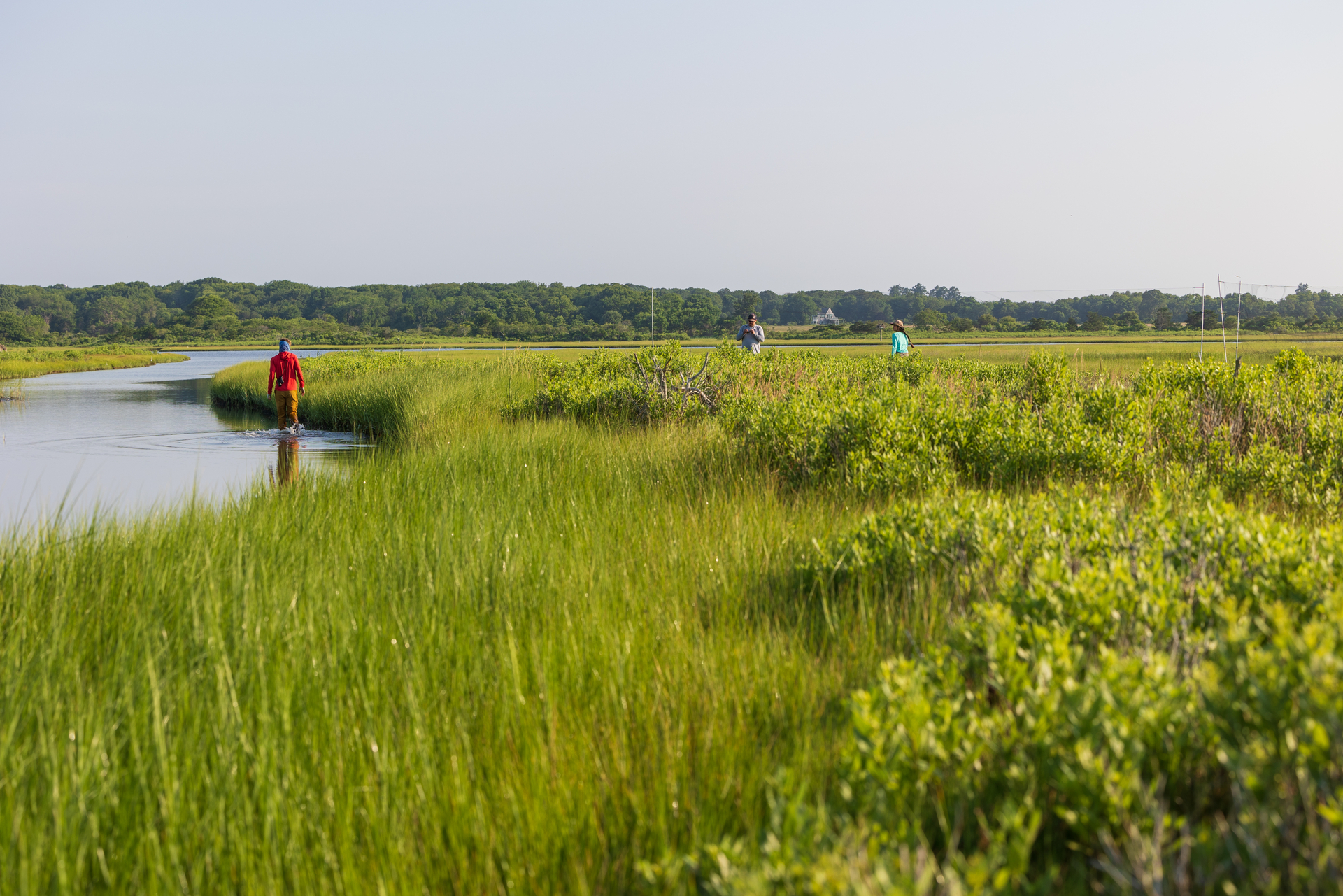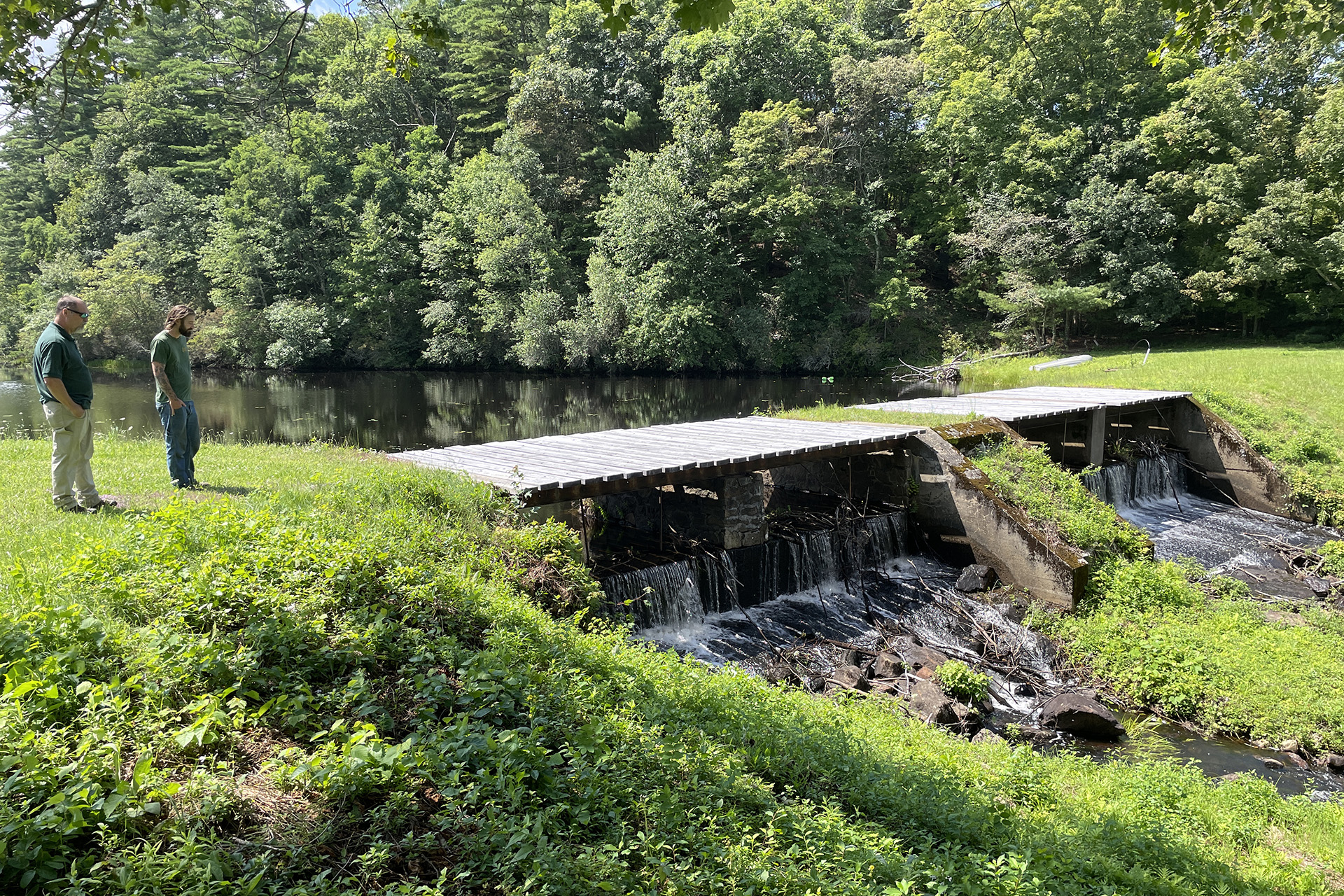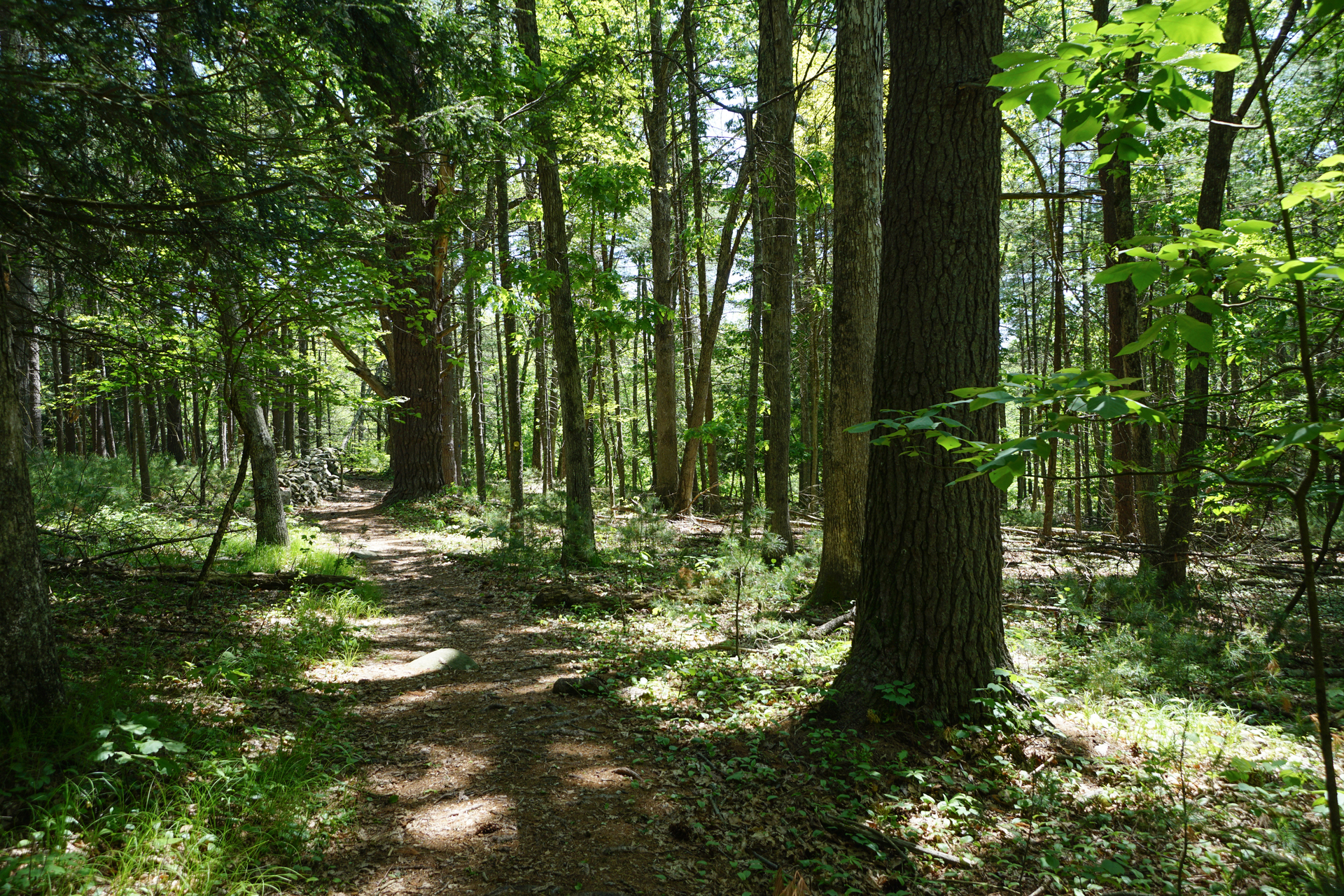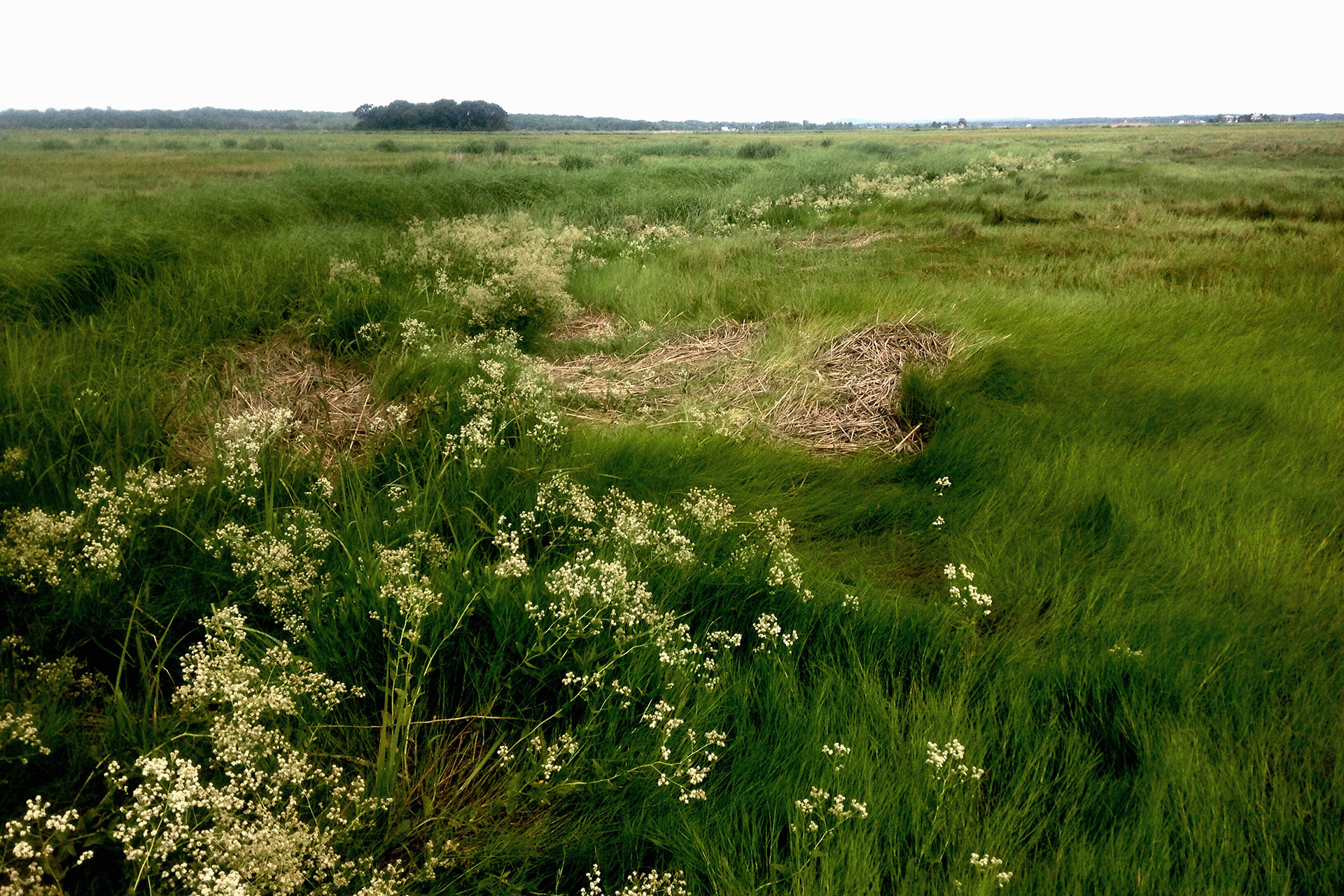Resilient Lands
Ecological Restoration
Mass Audubon uses ecological restoration as a major tool to support healthy wildlife habitats and biological diversity.
What is Ecological Restoration?
Protecting land from future development and stewarding our properties to be resilient in the face of climate change is important, but what happens when a piece of land is degraded, polluted, or overrun with invasives? That’s where ecological restoration comes in.
Ecological restoration assists in the recovery of damaged, degraded, or destroyed ecosystems, and includes many kinds of actions to rejuvenate wetlands, streams, forests, and fields. “Assisting recovery” means targeting root causes of impairment, repairing natural processes, improving connectivity, and working with local communities to gather wisdom and cultivate on-going care.
Ecological Restoration at Mass Audubon
Building on a decades-long tradition of restoration work across the state, Mass Audubon has added staff and expertise to do more, including projects of significant scope and scale. Our ecological restoration staff brings many decades of combined practitioner experience to the challenges of designing, permitting, implementing, and monitoring these projects. Our near-term focus is on projects and initiatives with the biggest opportunity for positive impact.
Impact of Ecological Restoration
Ecological restoration helps to build climate resilience, improve biological diversity, protect water quality, and rejuvenate beautiful natural places for people to visit and enjoy. Integration with land conservation and habitat management practices will help us meet our Action Agenda goals for resilient landscapes.
Our work relies on close partnership with other landowners and organizations—we are grateful for the chance to work with others to restore ecological health and resilience across Massachusetts.
For more information or to discuss potential projects, please contact us.
Take Action: Speak Up to Accelerate Wetland Restoration
The current regulation and permitting system makes doing beneficial wetland restoration work difficult, while allowing historic wetland degradation and destruction to remain in place, causing more damage every day. Through A Campaign to Accelerate Wetland Restoration Across the Commonwealth, Mass Audubon is working with our partners and members to help solve these challenges to benefit people and wildlife streamline permitting of wetlands restoration projects statewide.
Latest News
Together for Wildlife: Allens Pond’s 2025 Conservation Progress
Keep ReadingEcological Enhancements Coming to Laughing Brook Wildlife Sanctuary
Keep ReadingInvasive Perennial Pepperweed Control in the North Shore
Keep ReadingStay Connected
Don't miss a beat on all the ways you can get outdoors, celebrate nature, and get involved.



